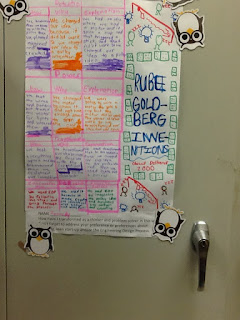Here is what I know: What the adults believe about children determines everything. Everything!
The new instructional coach in our building, Sean Henseleit, sums up what he believes about children into five words. He says, “I believe children are capable.” He’s right. I don’t think you need to say much more. Children are capable.
If this is what I believe, and I absolutely do, I don’t limit them to only what I know and understand. I believe I learn more from them than they from me. Let me give you an example:
Mercy, our youngest child, is a delightful spirit. She believes she is completely capable. She became inquisitive about hedgehogs. She did her research. She saved her money. She went to the Hamilton County Exotic Pet Show and bought a hedgehog born on July 4 that she named Sparkle. She was rapt as the ASL interpreter communicated what the pet owner explained about how to care for Sparkle. She came home. She set up the cage, the wheel, the food, the water.
Soon she had to clean the cage. How do you get the poop out without having to toss out all the shavings? Problem-solving occurred. A new use for chopsticks was invented. The next day a colander did the same job—much to her mother’s consternation.
 |
| Mercy and Sparkle |
Mercy is completely capable and she knows it. She’s profoundly deaf and some might see her as “disabled” or “incapable.” She doesn’t believe that. Neither do I.
My job is to turn her loose to let her curiosity take her places I don’t expect. My job is to give her freedom to solve problems in ways she sees that I might not. Mercy is capable, and as Dr. Seuss says, “She has places to go.”
Stephanie and Meg: Children Are Capable and Want a Challenge
Stephanie: False Rescue
We
are born to conquer. With challenge and conquer comes confidence.
Generation
X
Generation
Y and
Generation
Rescue?
How
many learning opportunities do we minimize each day with spoon fed support? In
an effort to support, might we be creating a generation of students that did
not experience the learning opportunities and level of application to generate
a generation of confidence?
From Meg: Students Want to Take a Challenge
My
student exclaimed with satisfaction, “That’s the hardest thing we’ve done this
year!”
Students
love the success that comes from taking a challenge. In this case, the challenge was for students
to reflect on how they had been transformed by a Rube Goldberg study unit. When I was planning, I didn’t think this
would be a particularly hard assignment.
I
started by modeling types of transformations and how to provide evidence to
support the transformations. Students
seemed ready to go. They were working in
project teams since this reflection activity was the first of its kind. It was
an open-ended response, meaning they could present the information in any
format. I didn’t even require an essay format.
Easy, right?
No,
it was challenging for me and my students!
It took group conferencing with questions such as:
- How can you find a more specific example of an activity in the study unit that changed you?
- How is that activity an example of a trait?
When
some groups looked a bit frustrated, additional brainstorming and discussion
eased the strain, but they did the work.
I pointed to student-created themes on the front board: “Transformation
= Potential + Power” and “Transformation through a Growth Mindset.”
 |
| Scaffold and support, but don't rescue! |
These
words reminded students to consider common vocabulary developed earlier in the
year and to be risk-takers. Mid-activity interruptions to share student
examples of transformations were an opportunity to celebrate and spark a new
line of thinking for other students.
Clearly,
the activity took a lot longer than planned. It was worth the additional time.
The
students rose to the challenge. All teams were successful with differentiated
scaffolding.
Students
earned the right to be proud of their hard work.
“That’s
the hardest thing we’ve done this year!” was not a statement of
frustration. It was a statement of pride
and accomplishment. When students are
challenged and supported—not rescued—they rise to the occasion.
Have a great week.
HSE Teaching and Learning Team (and Guests)



No comments:
Post a Comment